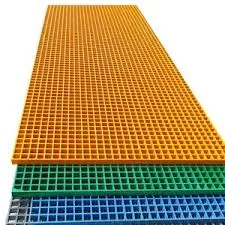
-
 Afrikaans
Afrikaans -
 Albanian
Albanian -
 Amharic
Amharic -
 Arabic
Arabic -
 Armenian
Armenian -
 Azerbaijani
Azerbaijani -
 Basque
Basque -
 Belarusian
Belarusian -
 Bengali
Bengali -
 Bosnian
Bosnian -
 Bulgarian
Bulgarian -
 Catalan
Catalan -
 Cebuano
Cebuano -
 China
China -
 China (Taiwan)
China (Taiwan) -
 Corsican
Corsican -
 Croatian
Croatian -
 Czech
Czech -
 Danish
Danish -
 Dutch
Dutch -
 English
English -
 Esperanto
Esperanto -
 Estonian
Estonian -
 Finnish
Finnish -
 French
French -
 Frisian
Frisian -
 Galician
Galician -
 Georgian
Georgian -
 German
German -
 Greek
Greek -
 Gujarati
Gujarati -
 Haitian Creole
Haitian Creole -
 hausa
hausa -
 hawaiian
hawaiian -
 Hebrew
Hebrew -
 Hindi
Hindi -
 Miao
Miao -
 Hungarian
Hungarian -
 Icelandic
Icelandic -
 igbo
igbo -
 Indonesian
Indonesian -
 irish
irish -
 Italian
Italian -
 Japanese
Japanese -
 Javanese
Javanese -
 Kannada
Kannada -
 kazakh
kazakh -
 Khmer
Khmer -
 Rwandese
Rwandese -
 Korean
Korean -
 Kurdish
Kurdish -
 Kyrgyz
Kyrgyz -
 Lao
Lao -
 Latin
Latin -
 Latvian
Latvian -
 Lithuanian
Lithuanian -
 Luxembourgish
Luxembourgish -
 Macedonian
Macedonian -
 Malgashi
Malgashi -
 Malay
Malay -
 Malayalam
Malayalam -
 Maltese
Maltese -
 Maori
Maori -
 Marathi
Marathi -
 Mongolian
Mongolian -
 Myanmar
Myanmar -
 Nepali
Nepali -
 Norwegian
Norwegian -
 Norwegian
Norwegian -
 Occitan
Occitan -
 Pashto
Pashto -
 Persian
Persian -
 Polish
Polish -
 Portuguese
Portuguese -
 Punjabi
Punjabi -
 Romanian
Romanian -
 Russian
Russian -
 Samoan
Samoan -
 Scottish Gaelic
Scottish Gaelic -
 Serbian
Serbian -
 Sesotho
Sesotho -
 Shona
Shona -
 Sindhi
Sindhi -
 Sinhala
Sinhala -
 Slovak
Slovak -
 Slovenian
Slovenian -
 Somali
Somali -
 Spanish
Spanish -
 Sundanese
Sundanese -
 Swahili
Swahili -
 Swedish
Swedish -
 Tagalog
Tagalog -
 Tajik
Tajik -
 Tamil
Tamil -
 Tatar
Tatar -
 Telugu
Telugu -
 Thai
Thai -
 Turkish
Turkish -
 Turkmen
Turkmen -
 Ukrainian
Ukrainian -
 Urdu
Urdu -
 Uighur
Uighur -
 Uzbek
Uzbek -
 Vietnamese
Vietnamese -
 Welsh
Welsh -
 Bantu
Bantu -
 Yiddish
Yiddish -
 Yoruba
Yoruba -
 Zulu
Zulu
fiberglass food grade equipment a closer look at its features and ...
A Closer Look at Fiberglass Food Grade Equipment Features and Benefits
In the food industry, maintaining high standards of hygiene and safety is paramount. One material that has gained popularity for food-grade applications is fiberglass. This composite material, made from fine glass fibers combined with a resin, offers a unique combination of properties that make it ideal for food processing and storage equipment. Here, we will explore the features and benefits of fiberglass food-grade equipment.
Durability and Strength
Fiberglass is renowned for its exceptional strength-to-weight ratio. This means that equipment made from fiberglass is not only lightweight, making it easier to handle and transport, but also incredibly strong and resistant to wear and tear. This durability translates to a longer lifespan for equipment, which is particularly advantageous for food processing operations that require reliable tools to handle heavy loads and continuous usage.
Non-Reactivity and Safety
One of the most critical factors in food handling is the material's reactivity. Fiberglass is chemically inert, meaning it does not react with food substances or produce harmful chemicals that could contaminate food. This non-reactive property ensures that food integrity is maintained, aligning with health regulations and standards in the food industry. As a result, fiberglass food-grade equipment is suitable for a wide variety of applications, including both wet and dry environments.
Ease of Cleaning
fiberglass food grade equipment a closer look at its features and ...

Sanitation is a critical aspect of food processing. Fiberglass surfaces are non-porous, which makes them resistant to water, bacteria, and other contaminants. This characteristic allows for easy cleaning and sanitization, helping facilities meet stringent hygiene standards. Additionally, fiberglass does not corrode or rust, further enhancing its appeal in environments where moisture is prevalent.
Design Flexibility
Another standout feature of fiberglass is its versatility in design. It can be molded into various shapes and sizes, allowing manufacturers to create custom solutions tailored to specific needs within the food industry. This design flexibility can lead to better efficiency in food processing operations, as equipment can be optimized for unique workflows and space constraints.
Cost-Effectiveness
While the initial investment in fiberglass equipment may be higher than some alternatives, its durability and long-term performance often make it more cost-effective over time. The reduced need for frequent replacements and repairs, combined with lower maintenance costs, can lead to significant savings for businesses in the food sector.
In conclusion, fiberglass food-grade equipment offers a compelling combination of strength, safety, hygiene, and versatility. As food industry standards continue to evolve, the advantages of fiberglass make it an attractive option for a variety of applications, contributing to both operational efficiency and food safety.









